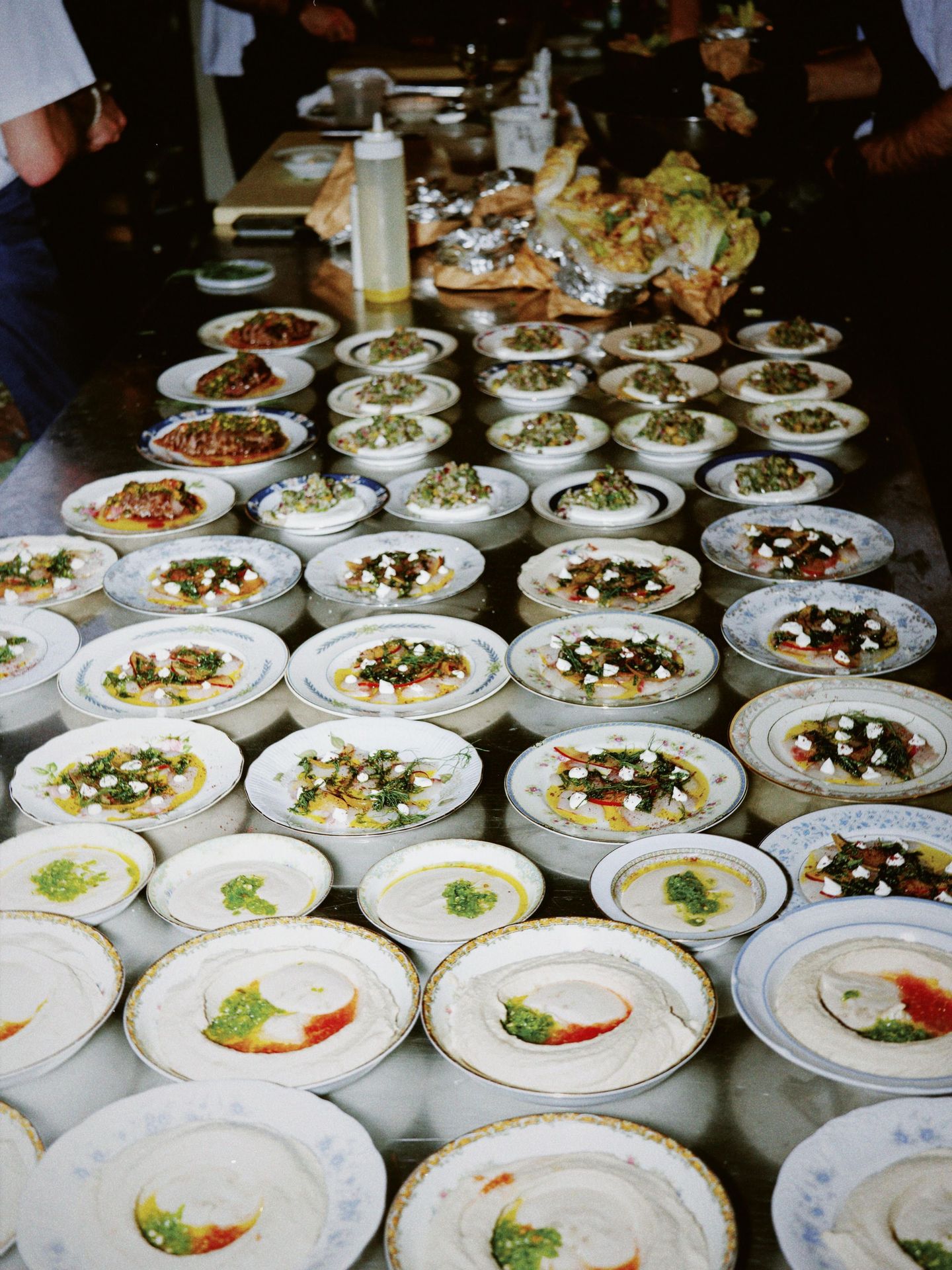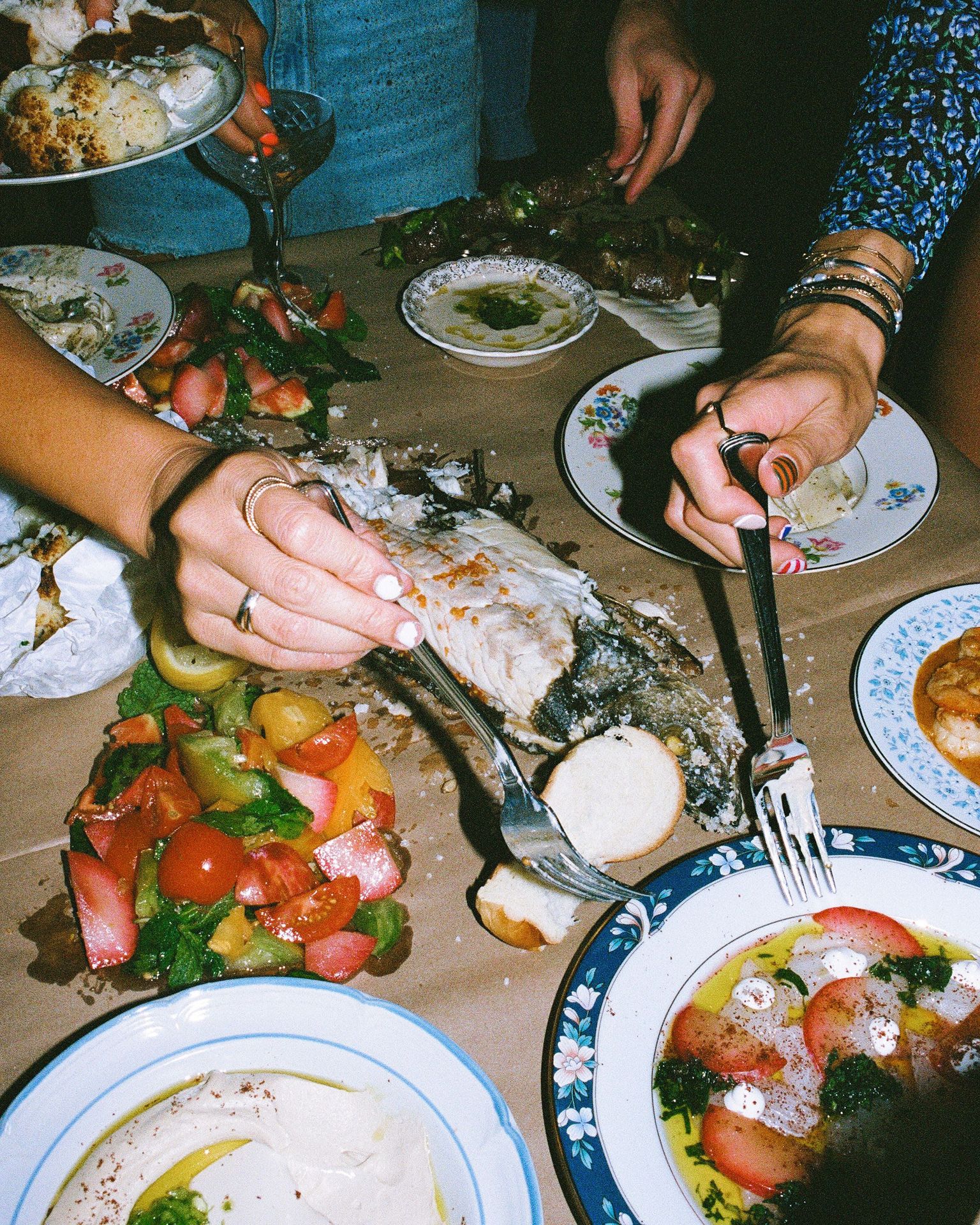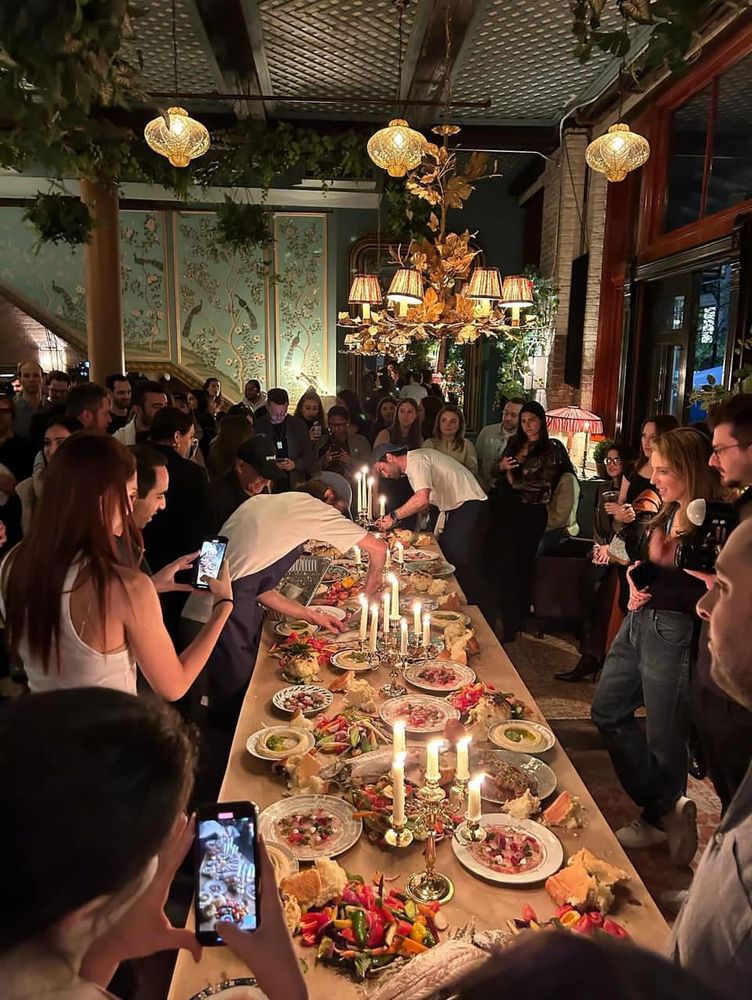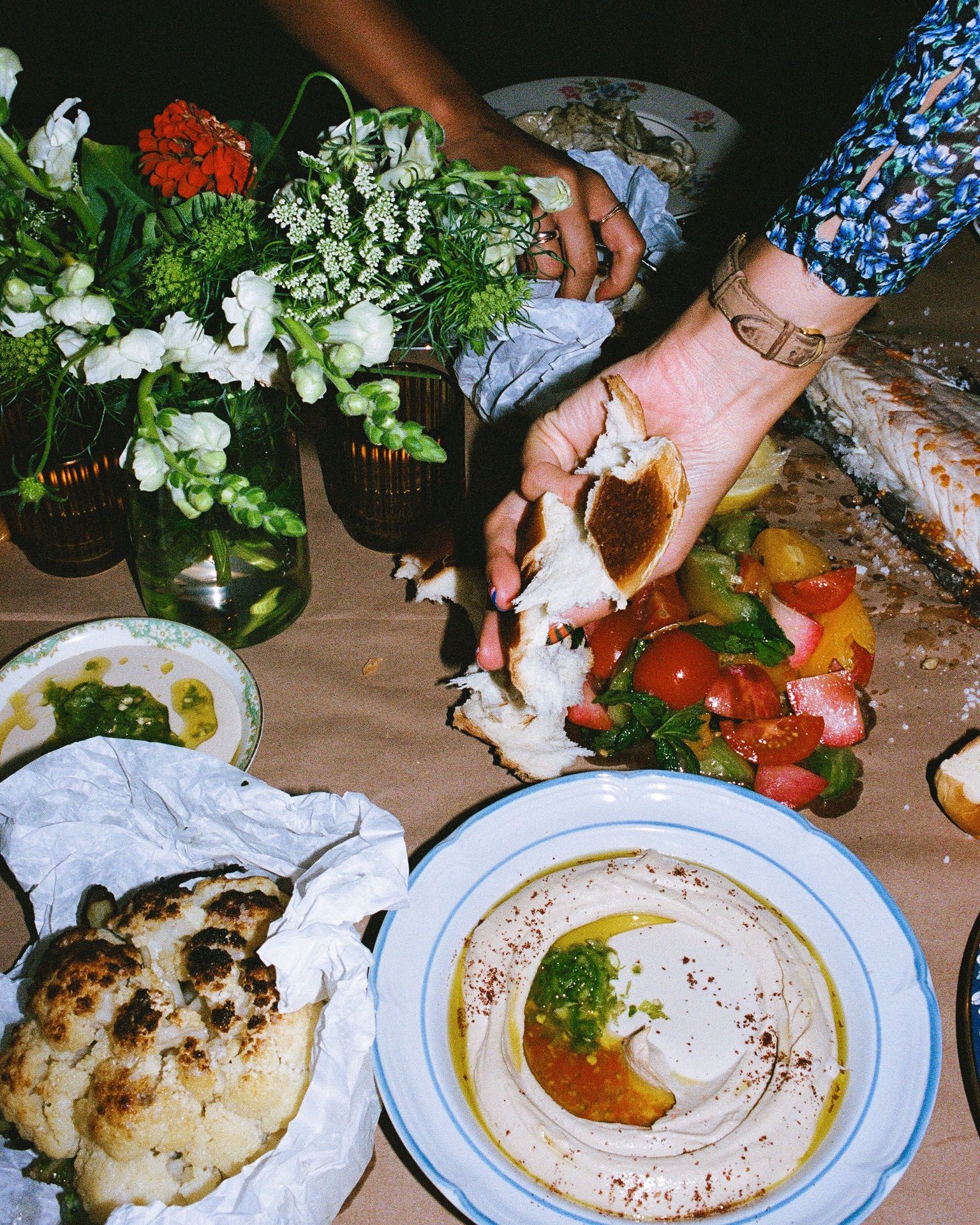Second, logistically, it’s simple and relaxed. There are no elaborate setups—no tall centerpieces, no formal place settings, no fine dining stiffness. It’s stripped down in the best way. There’s no need for servers—it’s more of a self-guided, warm, family-style experience where guests explore freely and comfortably.
And finally, there’s the environment—what the table itself creates and what it evokes in people in the moment. I like to describe it as a bit of organized chaos, especially when you have a big group. But that’s part of the beauty.
At one of our biggest events—actually, the biggest one we’ve done—we had 100 people at Maxwell Social. We set up one very long table, and it was amazing to see how people interacted.
Some of the events were Jewish-focused; others were not. But what I noticed, especially during the Jewish events, was the dynamic between the Israeli guests and the Jewish-American guests. You could immediately tell who was Israeli and who was Jewish-American.
The Israelis were jumping onto the table, showing that classic chutzpah—not in a rude way, but just more direct and energetic. Meanwhile, the Jewish-American guests tended to be more polite, hanging back, waiting for their turn to eat.
What I always explain is that this actually mirrors a bit of real life in Israel. If you grow up there, you learn that sometimes you have to be aggressive—otherwise, you simply won’t get your food. And that’s okay. It’s encouraged in this setting.
It brings us back to something primal—the original relationship between humans and food. At the end of the day, we’re all hunters and gatherers. That instinct, that energy, adds a playful and authentic dimension to the experience.
It’s something you don’t experience often—seeing people gathered on the table. Especially at networking events, I’ve found it breaks down barriers. It takes off the masks people usually wear.
Guests start to feel more like themselves—maybe even like kids again. And I think that’s the best environment for genuine interaction. No need to be overly elegant or formal. People can just be real.
So yeah—that's a little bit about the concept.
David Litwak: Ayuni has been around for four years now. How did it all get started? Were you working in kitchens before this? Did you have a day job and build this on the side? Is it now your full-time thing? I’m curious.
Neil Strauber: Yeah—my relationship with food started when I was about 11 years old.
Back in Israel, my stepdad worked in the administration side of fine dining—he was a buyer for several chef-driven restaurants. I used to get kicked out of school a lot—I was a bit of a troublemaker. After getting suspended, I couldn’t stay home alone, so I’d go with my stepdad to work.
That meant spending a lot of time in kitchens, hanging around with chefs. I just loved being there.
At 11 years old, I was already spending time in some of Israel’s top restaurants—places like Toto, Herbert Samuel, and Catit. I did all the prep work, the grunt work—whatever the chefs wanted to hand off. And I loved it.
I’d do whatever was needed—grill on the rooftop, peel potatoes, prep ingredients, clean up. I loved it. I loved the pace, the chaos, the rhythm of the kitchen.
But my main focus in life, even from a young age, was soccer. I played all my life and eventually moved to the States to play in college.
While I was in school, I kept strengthening my connection to food. I’d cook for friends, host dinners—just small gatherings meant to bring people together.
After I graduated, I had to figure out what was next. Soccer wasn’t going to be it anymore, and food was the natural next chapter.
At first, food was something that helped fill the void that soccer left behind. But now, it’s become so much more than that. I can honestly say I’ve found my real passion again.
I’ve come to terms with the fact that soccer had its place in my life, and now it’s food’s turn.
Since I didn’t have formal culinary training or traditional restaurant experience early on, I went on my own journey to find myself in this world.
For the past two years, I worked as head chef at the restaurant in what used to be the Selina Hotel in Chelsea—called Creatures. I gained incredible experience there, working with amazing people, all while continuing to do events around the city.



